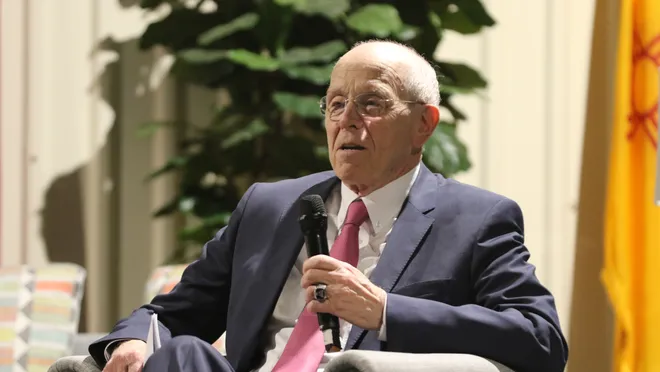 It would be hard to overstate how much changed in 2020. The global pandemic tested our resolve, forced lightning-speed adaptation in nearly every aspect of life, and the topic of energy catapulted to the top of political conversations.
It would be hard to overstate how much changed in 2020. The global pandemic tested our resolve, forced lightning-speed adaptation in nearly every aspect of life, and the topic of energy catapulted to the top of political conversations.
However, one thing did not change in 2020 and should be more evident than ever: Oil and natural gas are essential and irreplaceable.
While oil prices plummeted in the wake of the pandemic, the need for products made from oil and natural gas skyrocketed. Nearly every in-demand product we need to be safe, to save lives and to power our economy — from face shields and hand sanitizers to high-speed internet connections and computers — is made possible by oil and natural gas.
Even before the pandemic, 96% of products we use every day like pharmaceuticals, electronics, cosmetics and clothing are made from oil and natural gas. There is no substitute for oil and natural gas in our lives or for our economy.
As challenging as last year was, the Texas oil and natural gas industry paid $13.9 billion in state and local taxes and state royalties — funds that directly support Texas schools, teachers, roads, infrastructure and essential services. This total equates to about $38 million a day that are put to work for every Texan.
In 2020, Texas independent school districts directly received more than $2 billion in oil and natural gas property taxes. Counties received $688.4 million.
Our state’s Economic Stabilization Fund (commonly known as the Rainy Day Fund), the Permanent School Fund (PSF) and the Permanent University Fund (PUF) are funded almost exclusively with taxes and state royalties paid by the oil and natural gas industry.
Last year, the PUF received $771 million and the PSF received $942 million. The Rainy Day Fund received $1.66 billion from oil and natural gas taxes, bringing the balance to more than $10 billion — funds that will be vital to meeting our state’s budget deficit due to the economic downturn caused by COVID-19.
In addition to its economic impact, the oil and natural gas industry is the nation’s leading investor in pioneering emission-reducing technologies and, as a result, Americans are breathing the cleanest air in decades and the U.S. leads the world in reducing energy-related carbon dioxide emissions.
Methane emissions rates were down nearly 70% in five of the nation’s largest oil and natural gas producing regions between 2011 and 2019, according to data from EPA and EIA.
All this, while the United States enjoys more energy security than ever and American-made energy is powering economic prosperity and environmental improvements around the world.
This progress — and ways to build on it — must be part of more rational discussions about the future of our energy, our environment and our economy. Thanks to continued technological breakthroughs, driven largely by oil and natural gas companies, our energy choices to do not have to be “either/or.” Oil, natural gas and alternate sources will all be part of our cleaner energy future.
As the Texas Legislature begins its work in earnest, we are encouraging lawmakers to consider a three-part policy Roadmap to Recovery to drive oil and natural investment to power Texas’ economic recovery and provide critical state and local tax revenue Texans need.
Texas lawmakers must ensure continued, responsible development of the essential infrastructure that is needed to meet the demands of our booming population. Every Texan relies on electric transmission lines, roads, high-speed internet, drainage and flood control and pipelines for water, oil, natural gas and transportation fuels, and the expansion of this infrastructure is essential to the state’s continued growth and success.
The Legislature should embrace smart tax policy such as renewing the economic development program known as Chapter 313, which attracts investments and jobs to Texas, and resist calls to increase taxes on an industry that pays 6.3 times more in taxes on a per job basis than the average of the rest of the private sector.
Finally, we are urging lawmakers to maintain their commitment to science-based policy and rational discussions related to environmental issues, with the leading oil and natural gas innovators at the table.
Smart policies will encourage investment in and innovation by the oil and natural gas industry and will power us toward the cleaner, stronger, and better future every Texan deserves.
Source: https://lufkindailynews.com/news/community/article_0a1a93dd-1b1a-5847-82d7-adff834c53fa.html




0 Comments